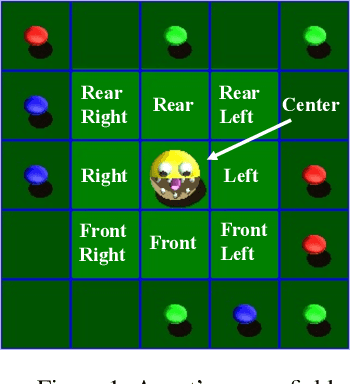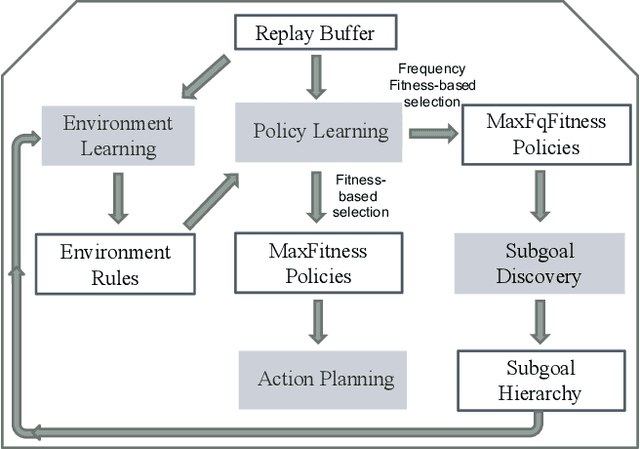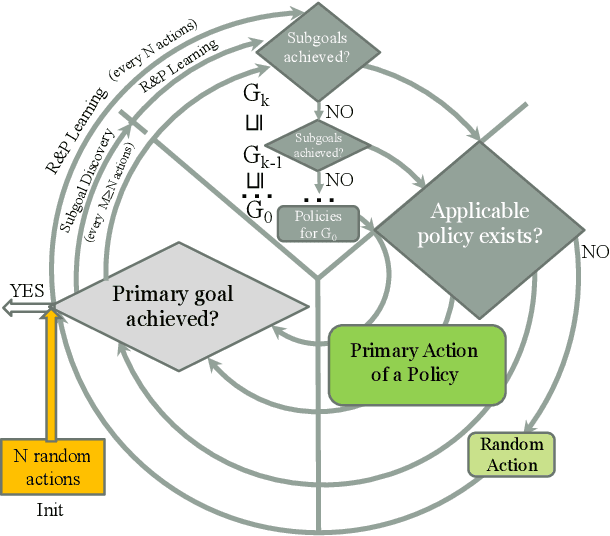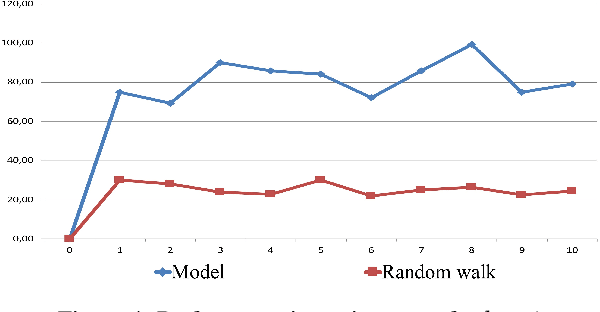Interpretable Reinforcement Learning with Multilevel Subgoal Discovery
Paper and Code
Feb 15, 2022



We propose a novel Reinforcement Learning model for discrete environments, which is inherently interpretable and supports the discovery of deep subgoal hierarchies. In the model, an agent learns information about environment in the form of probabilistic rules, while policies for (sub)goals are learned as combinations thereof. No reward function is required for learning; an agent only needs to be given a primary goal to achieve. Subgoals of a goal G from the hierarchy are computed as descriptions of states, which if previously achieved increase the total efficiency of the available policies for G. These state descriptions are introduced as new sensor predicates into the rule language of the agent, which allows for sensing important intermediate states and for updating environment rules and policies accordingly.
 Add to Chrome
Add to Chrome Add to Firefox
Add to Firefox Add to Edge
Add to Edge